WAC information portal publishes an essay on the work and fate of the outstanding Abkhazian writer of our days, Daur Zantaria to his 70th anniversary.
Asta Ardzinba
"Painfully long nights
I created myself from dreams
breathing in the music of silence
and breathing out the souls of words,
- and how I will pull the curtains apart
and spill the blue
- I will see for real
the open spaces invented by me."
Daur Zantaria
Abkhazian and Russian writer, poet and publicist Daur Zantaria was born on May 25, 1953 in the village of Tamysh, Ochamchira district of Abkhazia, in an ordinary peasant family. His parents had three children – Daur and his two sisters, Rimma and Eva.
Amazing child
Father, Badz Zantaria, was a veteran, a participant in the Great Patriotic War. Relatives and fellow villagers remember him as a skilled orator, a wonderful storyteller: perhaps this ability to master the word of his father was passed on to his son.
Daur was capable in everything. In his school years, he was excellent at exact sciences, he was strong in algebra and geometry, and he passed physics with excellence. However, even then his love for literature and a clear gift for it were manifested.
Here is just one interesting fact: in the seventh grade, the boy translated an entire chapter of "Eugene Onegin" into the Abkhaz language. He read the works of Russian and foreign writers, surprised teachers with his erudition, because he always read beyond what was included in the school curriculum.
Poetry instead of pop music
Across the road from Daur lived his friend and classmate - Vladimir Zantaria, the future poet and doctor of philology. No need to say that their interests and tastes largely coincided. Vladimir Zantaria, who later studied with Daur at the same university - the Sukhum Pedagogical Institute - recalls that young people loved to listen to vinyl records together. However, these were not foreign records with popular music, but rare recordings of performances by poets Sergey Yesenin, Vladimir Mayakovsky, Anna Akhmatova. The lively voices of Russian classics - that's what captivated gifted young men. Together they also wrote reviews of theatrical performances of the Abkhazian Drama Theater, which were published in the Apsny Kapsh newspaper.
"Daur’s parents, father Badz, a handsome veteran, in orders, he was often invited to the Tamysh school, where he was asked to speak to students, and his mother, Natella, these people were hard workers, they worked on a collective farm, grew tobacco. Always hospitable, they lived in abundance, but everything was earned by their hard work. The family did not have any special opportunities. Daur was not spoiled by them," says Vladimir Zantaria.
Daur Zantaria graduated from the philological faculty of the Sukhum Pedagogical Institute in 1975. The first place of his work was the editorial office of the children's magazine "Amtsabz" ("Flame") in Sukhum. During this period, he published collections of his short stories in the Abkhaz language "Embankment" (1979) and "Nar ulbait" (an untranslatable wish in Abkhaz to safely descend to the ground to those who climbed a tree - ed.) (1981).
Mind-blowing texts
In 1984, Daur entered the Higher Courses for Screenwriters in Moscow and travelled there. He studied at the studio of film writer Valentin Ivanovich Yezhov, the author of scripts for the Soviet films "Ballad of a Soldier" and "White Sun of the Desert". In the same year, Zantaria became a Member of the Union of Writers of the USSR (already being a member of the Union of Writers of Abkhazia). He began to make friends with writers Andrey Bitov, Fazil Iskander, Tatyana Beck and Marina Moskvina (the latter is the author of the essay "The Life of Daur Zantaria, the Colchis Wanderer" and compiler of a memorable collection about him - ed.).
If at the beginning of his career Daur wrote mainly in Abkhaz and very little in Russian, then gradually he shifts more and more to Russian. He himself translates some of his works from Abkhaz into Russian. During this period, Daur creates two historical stories. The first is "The Fate of Chu Yakub", its story takes place in the second half of the 19th century, during the period of mass migration of the Ubykhs to the Ottoman Empire. The main character, Ubykh Yakub from the Chu clan, was among the highlanders of the Caucasus, who led a rebellion in Cairo against the Sultan. The second story - "Enji-Khanum, circumvented by happiness" - is a complex and dramatic story of the Abkhazian princess.
"It (the second story - ed.) seemed to me not only talented, but also brilliant," recalled the writer Andrey Bitov, "the new genre is so expressed in it, the new writer is an organic fusion of epic and chronicle, folklore and annals. It seemed that after Fazil Iskander there was nothing to be done in the Abkhaz-Russian prose. Daur found a path, the continuation of which promised world power.
Both stories, indeed, have become a noticeable phenomenon not only in the work of Zantaria, but also in general in the literary life of Abkhazia.
Moscow colleagues and friends highly appreciated the talent of Daur Zantaria. Andrey Bitov translated his story "Knight Hutt from the Hutt clan", it was published in 1987. The editor-in-chief of the Rossiya newspaper, Ivan Podshivalov, said that Daur knew how to write in such a way "the nobility of the soul magically appeared on the book sheet."
"Those rather rare texts of his that were suitable for publication (because he usually wrote with such leaps and ramifications of consciousness that blew your mind) aroused universal admiration," Podshivalov noted.
The war
“Hello, however, day.
Where all the houses have no walls.
Hello, dear Tamysh.
Where all the houses have no roofs.
Daur Zantaria, "Silence"
The war in Abkhazia (Patriotic war of the people of Abkhazia in 1992-1993 - ed.) began in the summer and found Daur in his homeland in Abkhazia. The war was a shock for the writer. In his inner circle, they later recalled that something had broken in him and he turned gloomy. Tamysh, the native village of Daur, became the site of fierce fighting. The father's house was destroyed, many manuscripts were destroyed. He would later describe minefields, bombed-out buildings and renovated cemeteries in his works; he would dedicate his heartfelt story "Three dates with home" to his native home. Daur's brothers died in the war, his close friend Adgur Inal-ipa was perished - Daur will dedicate his famous poem "I am sitting under the elms ..." to him.
In the same period, after a long illness, his wife Larisa died, and Daur was left alone to raise his son Nar.
Only in 1996 did the writer come to Moscow again, together with his son. He found a job in the field of journalism. He was a columnist for the Rossiya newspaper and a correspondent for the Expert magazine. These and other editions published his essays and articles on the issues of the Caucasus and military conflicts.
The writer Peter Aleshkovsky noted on this turn of fate that Zantaria "escaped" from Abkhazia to Moscow from the consequences of the war and disorder. Daur really sought refuge, because he could hardly endure everything that had fallen on him. "He was tormented by his conscience, choked by the impotence to do something for the good - he did what he could, wrote a book," explains Aleshkovsky.
Zantaria’s golden novel
The main novel of Daur Zantaria, the pinnacle of his work - "The Golden Wheel" - was published in Moscow in 1998. This is a work about the Georgian-Abkhaz conflict, which critics called a historical novel with elements of magical realism. After its release, Zantaria immediately began to be compared with Gabriel Garcia Marquez, although he himself dismissed this comparison.
"When I feel a certain influence and dependence, I try to avoid them," he said in an interview with the poet Tatyana Beck. He explained: "Criticism has already drawn parallels with Latin Americans. We talked about mythology, magical realism. I have little understanding of this. A culture that has little or no written traditions turns to its own folklore, which is usually distinctive and colorful. In folklore, as it were, the whole people participate in creativity, without entrusting it to writers. This is your roots. Therefore, when talking about the people, I cannot do without mythology. Probably, Marquez wrote the history of his people in this way - from scratch.
"The Golden Wheel" was written in Russian, and the author believed that the Abkhazian novel would have turned out completely different.
"A guest who first came to someone else's house, what is he trying to be? He tries to be cheerful, smart and tells the most wonderful things about his region. And this will always bring together all non-Russian writers who write in Russian, regardless of their level, be it Gogol or me: they (we) are guests in Russian literature. I could write this novel in the Abkhaz, and then safely translate it into Russian. And it would be a completely different novel: it would be for its own people and would certainly be tougher," Daur Zantaria admitted to the same Tatyana Beck.
Legacy
Soul, you will fly through the Milky Way
Where you can embrace many native shadows
Before it's time for you to grow up
In the world where you are destined to forget and stay,
- From where my grandfather did not want to leave,
The one who knew how to return from any wanderings.
Daur Zantaria, "Night"
Daur Zantaria was only 48 years old when, on August 7, 2001, his life was cut short by a heart attack. He died in a Moscow rented apartment near the Sokol metro station.
A year later, within the XV Moscow International Book Fair, the presentation of the book "Colchis Wanderer" took place, which included the best works of Zantaria and the memoirs of his friends - Andrey Bitov, Evgeny Rein, Tatyana Beck, Peter Aleshkovsky. It was compiled by Marina Moskvina, illustrations by Leonid Tishkova. Memories proved to be valuable components for the mosaic of the biography of a man of Daur's size. They helped, in particular, in the preparation of this essay.
In memory of Daura Zantaria, in 2010 in Sukhum, in his former apartment, the Daur Zantaria’s Cultural Center was established. The founder and director of the Center is a public figure Tsiza Gumba.
In 2013, the Collected Works of Daur Zantaria was published in the Abkhazian State Publishing House in two volumes, in the Abkhaz and Russian languages. It includes previously unpublished works, journalism and diaries. The compiler and author of the preface to the publication is Vladimir Zantaria.
This two-volume edition is conditionally called a collected works, the compiler notes. The publication includes the most striking works of Daur, but the writer's legacy is so rich that it is possible to release "even the third and fourth volumes."
According to Vladimir Zantaria, Daur "managed to blur the line between myth and reality" in his works. This is what is called mythopoetics today - the inclusion of motifs, allusions and mythological images taken from folklore in a literary text.
"Daur plucked up the courage to go against the canons of classical Abkhaz literature. He went against the iron stability of tradition. Our writers rarely could afford slang, but he easily resorted to it. He took a different path and created his own style, very original and bright. He could tell about the "thief in law" in his works, and vividly portray the life of the Sukhum gypsies. He was interested in all these types. He himself could spend the evening in the company of a gypsy baron, he could support the thieves' conversation," says Vladimir Zantaria.
One of the characteristic features of Daur Zantaria's work is irony and subtle humor. In this irony, he was not like another great writer of Abkhazia, Fazil Iskander. Daur occupied his niche, whereas Fazil his own. Daur’s friend, the artist Adgur Dzidzaria, confirms this idea.
"I'm not distant enough from Daur to talk about his work," warns Dzidzaria. "We socialized too closely, and live communication, of course, obscured his importance as a writer. However, I must say, he was unique, unlike anyone else. A very deep and complex person, always a valuable interlocutor. In everyday life, he was funny, and we, friends, could laugh at this. However, his reasoning did not pass us by. Communicating with him always revealed new facets in you."
As for the preservation of the heritage of Daur Zantaria, this process is still underway, and today positive trends are noticeable in this direction, the artist notes.
"Today our country is going through difficult times. But if, relatively speaking, the Abkhazia project takes place, if we succeed as a nation, and the healthy forces of society win, then Daur Zantaria will occupy a worthy place in the future of Abkhazia."
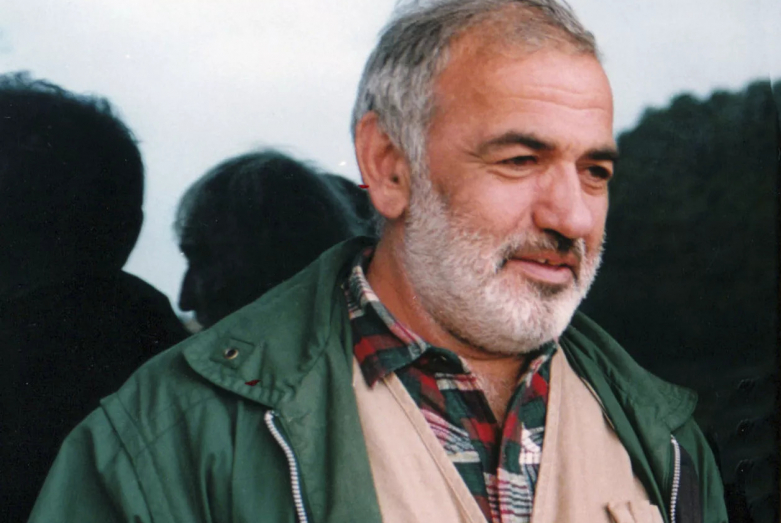
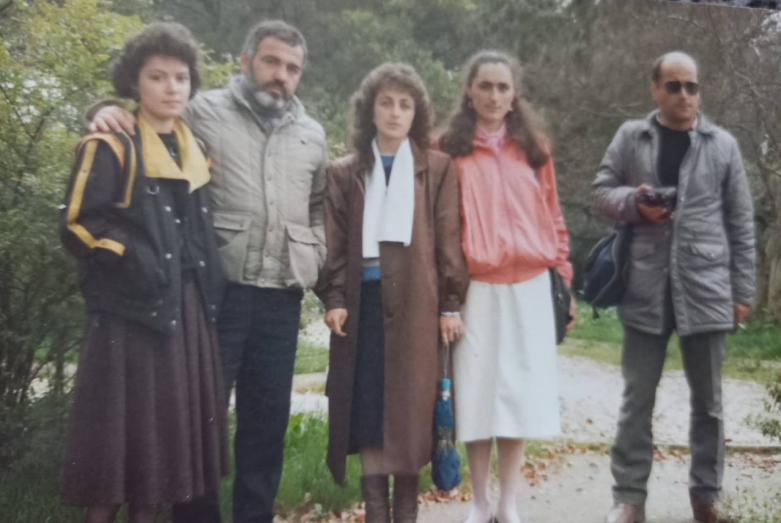
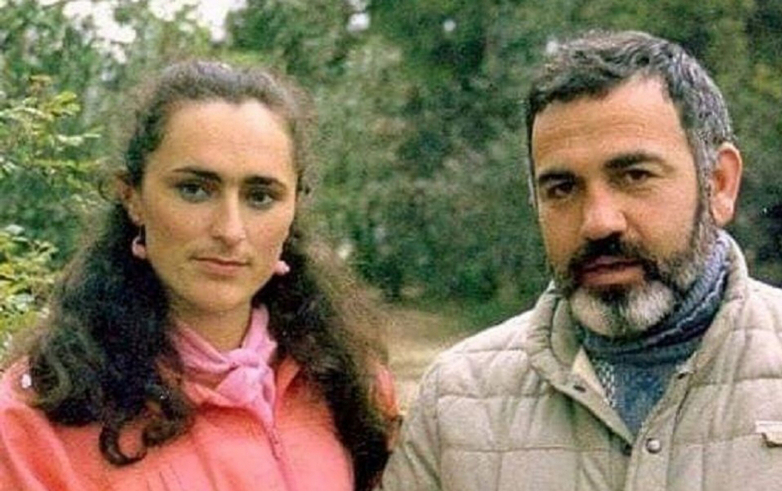
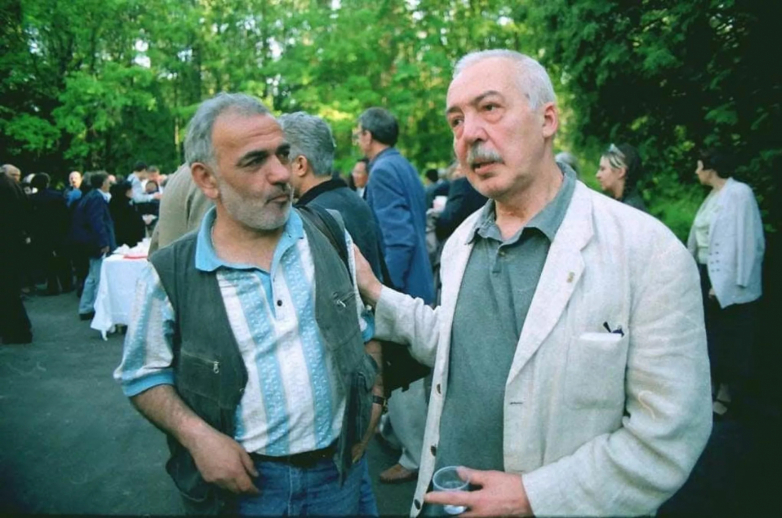
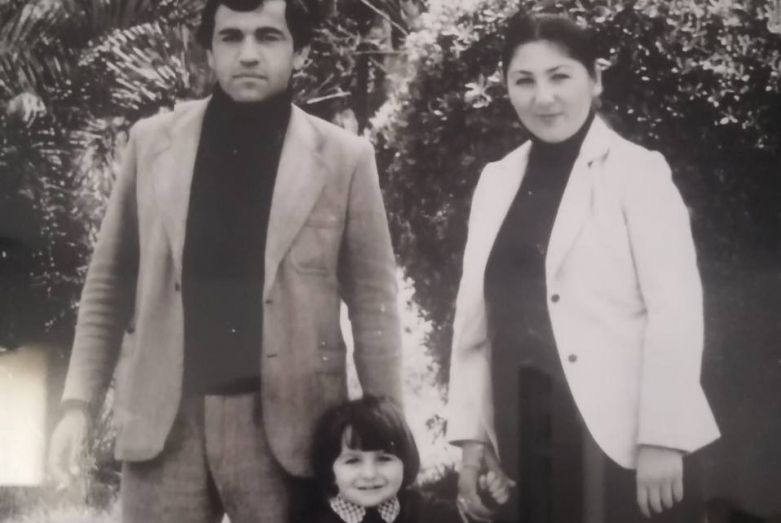
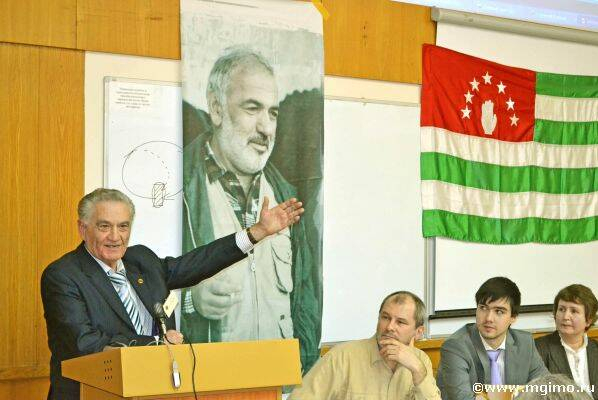
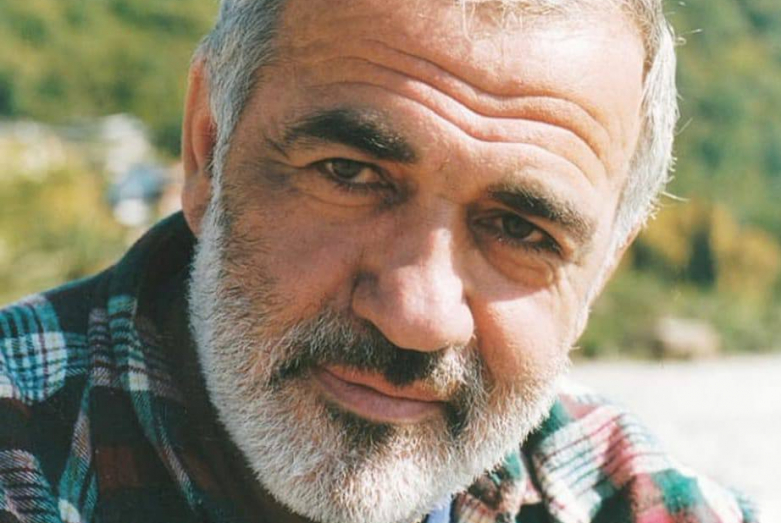
to login or register.